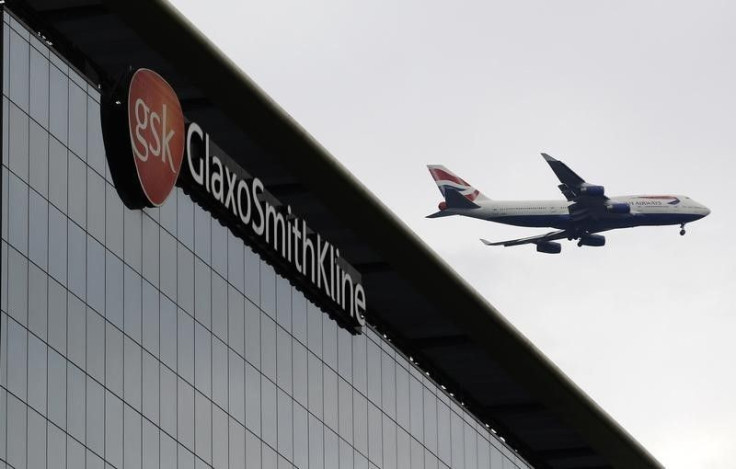First UK Volunteer Gets Experimental GSK Ebola Shot In Trial

LONDON (Reuters) - The first volunteer in a fast-tracked British safety trial of an experimental Ebola vaccine made by GlaxoSmithKline received the injection on Wednesday, trial organizers said.
The candidate Ebola vaccine, which GSK co-developed with the United States National Institutes of Health, has also been given to 10 volunteers taking part in a separate trial in the United States, and so far there were no signs of any serious adverse reactions, doctors said.
The vaccine is designed to specifically target the Zaire strain of Ebola, the one circulating in the West Africa epidemic, the worst Ebola outbreak recorded.
Since the vaccine contains no infectious Ebola virus material, only one of its genes, experts say there are no concerns that any of the subjects will contract the deadly disease.
Latest data from the World Health Organization (WHO) show about 2,500 people have died of Ebola in an outbreak that started in March and has infected almost 5,000 people in Guinea, Sierra Leone, Liberia and Nigeria.
The British trial is being run by a team at Oxford University.
A spokeswoman for the Oxford team said the first volunteer in the UK trial was vaccinated early on Wednesday, but gave no further information. She said more details would be given later.
Dr. Anthony Fauci of the National Institute of Allergy and Infectious Diseases told a U.S. Senate panel on Tuesday that "no red flags" indicating serious adverse reactions have been found in the 10 healthy volunteers vaccinated there so far.
The trials are seeking to determine not only whether the vaccine is safe, or causes adverse side effects, but also whether it triggers the production of antibodies against the Ebola virus.
The aim is to complete the tests by the end of 2014, after which vaccines could be deployed on an emergency basis.
GSK says it plans to begin making up to about 10,000 doses of the vaccine at the same time as the initial clinical trials, so that if they are successful, the vaccine could be made available immediately for an emergency immunization program.
Ben Neuman, a virologist at the University of Reading who is not involved in the vaccine studies, said it was important not to get ahead of the results.
"There is clearly a need for this vaccine, but what is not clear is whether it will work well enough to protect someone from Ebola," he said.
He said the experimental shot "uses some of the best available technology to give the immune system a good long look at its target, a small but vitally important part of the virus", but added: "We won't really be able to tell whether the vaccine works until it is tested on the ground in West Africa."
Study data from an animal trial of an Ebola vaccine similar to this GSK one showed that it was effective for at least five weeks in lab monkeys but required boosting with an additional vaccine to extend its protection to 10 months.
(Reporting by Kate Kelland; Editing by Janet Lawrence)
Published by Medicaldaily.com



























